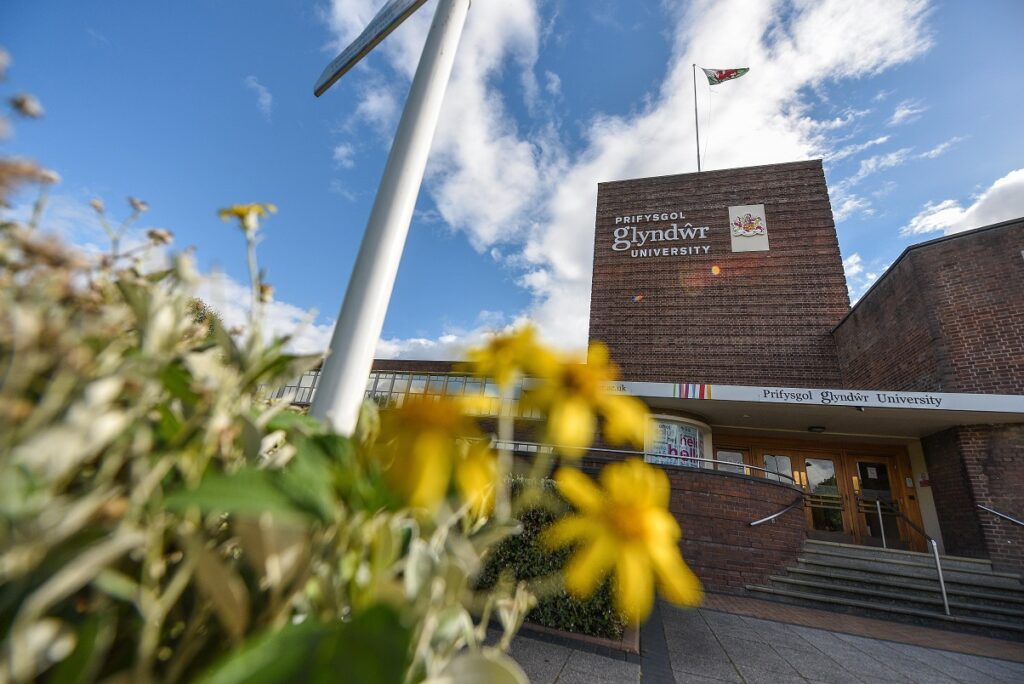Wrexham Glyndwr University will be part of testing programme launching a new kind of COVID-19 test which could lead to faster, more widespread testing nationwide.
The university will be working closely with the Government’s Department for Health and Social Care (DHSC) to host a new NHS Test and Trace centre offering staff and students free ‘lateral flow’ tests.
Lateral flow tests are aimed at people without COVID symptoms and can produce results faster than the current PCR tests used across the NHS to test those with symptoms.
Testing at Wrexham Glyndwr University with lateral flow will be offered between November 30 and December 4. The Catrin Finch centre has been allocated as the testing facility for students and staff of Wrexham Glyndwr University. This testing centre is not open to members of the public.
Executive Direction of Operations at Wrexham Glyndwr University, Lynda Powell said: “We of course want to ensure that those of our students who wish to go home for Christmas can do so safely, so by offering tests to our student population we hope to be able to impact the line of transmission.
“We will be prioritising students in our accommodation who plan to travel home by December 9, particularly those with vulnerable relatives but testing will be open to all of our students and any staff who want one.
“Students who test negative are encouraged to then travel home within the next 24 hours following the negative result. Any student who tests positive must self-isolate for 10 days, which still leaves time to travel home for Christmas.
“Teaching will continue as planned until December 18 with adaptions made as necessary for any students who have travelled home before then to ensure they do not miss out on any of their learning.”
Lateral flow tests detect the presence or absence of coronavirus by applying a swab or saliva sample to the device’s absorbent pad. The sample runs along the surface of the pad, showing a visual positive or negative result dependent on the presence of the virus.
The progress of the testing programme will be analysed carefully alongside other universities to assess how lateral flow devices might be used to test large numbers of people who do not have symptoms, and how this might help to get the country back to normal.
Health Minister Lord Bethell said: “We’ve already come so far since first setting up a national testing programme at an unprecedented pace to help counter COVID-19, but we continue to strive to go further, faster.
“Innovations such as lateral flow testing hold the key to the next phase of our ambition to see mass, rapid testing available to people across the country.
“I’m delighted that Wrexham Glyndwr University are working with us using the
latest technology and I look forward to seeing the fruits of their labour, both in helping target the virus locally, and helping find ways to roll this technology out further soon.”
Throughout the COVID-19 pandemic, Wrexham Glyndwr University has worked to support its staff, students and the community around it. Volunteers from across the university have stepped up to help in the pandemic, including Physiotherapy lecturers working with Health Education and Improvement Wales, local health boards and NHS staff to help boost and refresh skills in respiratory care and tackle the challenge of Covid-19.
Providing unused PPE resources to healthcare workers during the early stages of the pandemic – and both staff and student volunteers lent time, equipment and expertise to efforts to manufacture and distribute PPE across North Wales – whether in community hubs or through the equipment at our OpTIC Technology Centre.
Students on courses including Social Care, Youth and Community Work, and Criminology worked as both volunteers and in paid employment to ensure key services, charities and more kept running during the pandemic. Glyndwr students on a range of degrees, from Engineering to Nursing, also helped to both provide goods and raise funds for charity.








